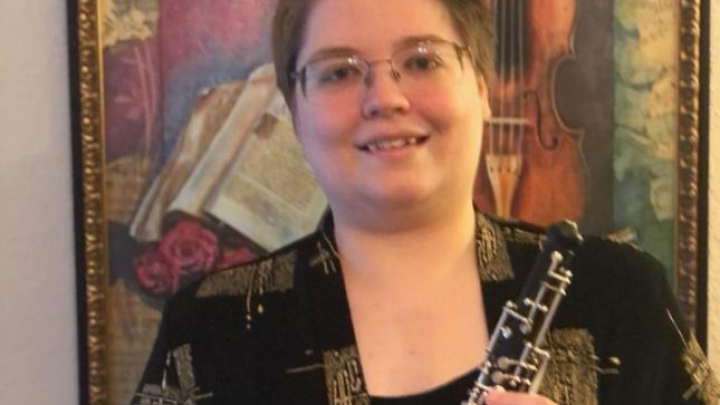Ashley Rollins
Lesson Feesfrom $26.00 / 30 Minutes
Promotions Available
About
Ashley has a decade's experience teaching oboe to age levels from 5th grade through college, mostly in the competitive north Dallas area, where her students have been successful at region and all-state auditions and at state solo and ensemble contests. She earned a bachelor's degree in oboe performance from the University of Michigan and a master's degree in oboe performance from the University of North Texas, where she also served as the oboe studio teaching assistant. She is currently the adjunct oboe professor at Collin College. She freelances with a number of regional orchestras in the area, and her reed trio (a chamber music ensemble consisting of oboe, bassoon, and clarinet) Fenglírë has earned a position as a finalist for the American Prize in professional chamber music performance.
arollinsoboe.weebly.com
https://www.youtube.com/channel/UC-hf5-Mzyezw0RPoMq9eLRg
During our first lesson, we will discuss the student's experience level and make a plan for how to go forward.
Oboe can be a challenging instrument to start, but addressing the technical challenges in a methodical order can help tremendously. With young students, I make an effort to build the necessary technical skills in a deliberate, scaffolded way to help students meet the challenges presented. These technical skills include control of dynamics, range, and tone as well fingers. Intermediate and advanced students continue to build these skills with warm-up exercises to build control of tone, dynamics, and range, as well as scales, arpeggios, and arpeggio patterns to build technique.
As students grow as musicians, we focus in on musicality. While musicality is a life-long endeavor with a lot of subtlety and subjectivity, the building blocks are relatively straightforward to learn. With intermediate and advanced students, we will focus a great deal on learning this musical grammar and building a good understanding of musical playing.
I also think it's important that advancing students develop some level of familiarity with the major eras and styles of classical music that oboists tend to encounter, such as Baroque, Classical, Romantic, and Contemporary. An oboist must make significantly different stylistic choices based on which era the piece is from. We'll discuss how trills, articulations, and sometimes grace notes may be different in Baroque and Classical era music, and discuss baroque ornamentation.
Bachelor of Music in oboe performance, University of Michigan;
Master of Music in oboe performance, University of North Texas;
Adjunct Professor of Oboe, Collin College;
member: International Double Reed Society, American Federation of Musicians, Texas Music Educators Association, National Association of Collegiate Wind and Percussion Instructors.
Depending on the student's experience, we will likely use some combination of the Edlefsen Oboe Student series, the Barret oboe method, and/or the Ferling 48 studies.
